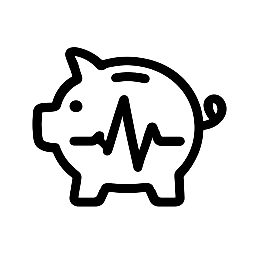In recent years, cryptocurrency has transitioned from a niche innovation to a major force reshaping Cryptocurrency in the Health Sector and other industries across the globe. One sector rapidly awakening to its potential is healthcare. As challenges like data breaches, opaque billing systems, and cross-border inefficiencies continue to plague the health sector, blockchain and digital currencies are emerging as powerful solutions. From streamlining medical transactions to enhancing patient data privacy, the crypto revolution promises to drive much-needed innovation in healthcare.
This article explores how cryptocurrency and blockchain technology are being applied in healthcare, the challenges involved, and the real-world impact of these applications. Whether you’re a tech-savvy medical professional, a blockchain enthusiast, or a curious reader looking to understand the intersection of finance and healthcare, this detailed guide offers valuable insights.
What is Cryptocurrency and Why Healthcare Needs It
Cryptocurrency is a digital currency that relies on cryptography for security and is often powered by blockchain technology—a decentralized, tamper-proof ledger system. Popular cryptocurrencies include Bitcoin (BTC), Ethereum (ETH), and Solana (SOL). These digital assets are not only mediums of exchange but can also automate processes through smart contracts—self-executing codes with predefined conditions.
In healthcare, where data sensitivity, regulatory complexity, and operational inefficiencies converge, the immutable and transparent nature of blockchain offers compelling advantages.
Blockchain: Transforming Healthcare Infrastructure
1. Securing Medical Records
Managing Electronic Health Records (EHRs) through blockchain ensures data integrity, enhances privacy, and simplifies access. With patient consent, records can be shared seamlessly across providers without compromising confidentiality—an essential factor in improving care coordination.
2. Pharmaceutical Supply Chain Transparency
Blockchain can track a drug’s journey from production to patient, helping verify authenticity, eliminate counterfeit drugs, and ensure compliance with vaccine cold-chain logistics.
3. Smart Contracts for Insurance Automation
Insurance claim processes are often bogged down by paperwork and fraud. Smart contracts simplify this by automatically verifying conditions (e.g., treatment codes or diagnostics) against policy terms and processing claims transparently and efficiently.
Real-World Use Cases: Cryptocurrency in Action
1. Medical Donations and Global Crowdfunding
Cryptocurrency facilitates borderless medical donations and humanitarian aid. Platforms like BitGive use blockchain to provide transparent, real-time tracking of how funds are spent—bolstering donor confidence.
2. Patient-Centered Data Monetization
Startups like Medicalchain and Patientory empower patients to monetize their anonymized health data. By participating in research or clinical trials, patients can earn crypto tokens, turning personal data into economic value.
3. Remote Healthcare Payments
Decentralized apps (dApps) allow patients, especially in unbanked or remote regions, to access telehealth services and pay using cryptocurrency. This reduces reliance on unstable local currencies and promotes financial inclusion.
4. Reward-Based Wellness Apps
Apps such as Sweatcoin and Lympo incentivize healthy lifestyles by rewarding users with cryptocurrency for physical activities like walking or exercising. These tokens can be redeemed for health products or services.
Benefits of Integrating Crypto in Healthcare
✔ Enhanced Data Security
Blockchain’s cryptographic foundation reduces the risk of hacking and unauthorized access, addressing critical data privacy concerns.
✔ Improved Operational Efficiency
Smart contracts automate back-office processes like billing and claims, cutting down administrative overhead.
✔ Transparent Medical Transactions
Blockchain creates a traceable audit trail, ensuring compliance and boosting trust among patients, providers, and insurers.
✔ Patient Empowerment
Cryptocurrency and blockchain solutions shift control of health records and payments to the patient, fostering autonomy.
✔ Cross-Border Accessibility
Cryptocurrency removes barriers related to currency exchange and cross-border payment systems, particularly in global health initiatives.
Challenges Hindering Wider Adoption
1. Regulatory Uncertainty
Crypto adoption in healthcare is slowed by the lack of standardized global regulations, especially around data privacy and digital transactions.
2. Price Volatility
The fluctuating value of cryptocurrencies can complicate billing, donations, and reimbursements.
3. Scalability Concerns
Some blockchain networks struggle to handle high transaction volumes—a critical limitation in fast-paced healthcare settings.
4. Data Privacy Compliance
While blockchain is secure, public ledgers must be carefully implemented to comply with regulations like HIPAA and GDPR.
5. Lack of Awareness and Training
Many healthcare professionals and administrators lack the technical expertise needed to evaluate or implement crypto-based systems.
The Road Ahead: Future Trends in Crypto-Healthcare Integration
🔷 Tokenized Health Ecosystems
Imagine a healthcare platform where patients earn tokens for health behaviors, use them for appointments, and share data with researchers—all powered by blockchain.
🔷 AI Meets Blockchain
AI can analyze blockchain-stored health data to deliver predictive analytics and personalized care plans.
🔷 Evolving Regulatory Frameworks
Governments are slowly building legal structures that support crypto applications in sensitive sectors like healthcare.
🔷 Interoperability Solutions
Improved protocols for data sharing between different blockchain systems will make real-world integration smoother and more scalable.
Problem-Solving Approach for Healthcare Providers
How can healthcare providers begin adopting crypto in a practical and compliant way?
✅ Step 1: Educate & Train
Host workshops or online courses for staff to understand blockchain basics and its implications for healthcare.
✅ Step 2: Identify a Pain Point
Choose a manageable area—such as donation tracking or EHR storage—and pilot a blockchain solution.
✅ Step 3: Collaborate with Blockchain Experts
Partner with vetted tech firms or consultants who understand both blockchain technology and healthcare compliance.
✅ Step 4: Engage Regulators Early
Work proactively with legal advisors to ensure your solution aligns with current privacy and financial laws.
✅ Step 5: Monitor, Analyze, and Scale
Track results from the pilot project, gather user feedback, and improve iteratively before expanding the solution.
Final Thoughts: Is Cryptocurrency the Future of Healthcare?
While challenges such as regulation and volatility remain, the potential benefits of cryptocurrency in the healthcare sector are immense. From automating processes and increasing transparency to expanding access and empowering patients, blockchain and crypto technologies present a transformative toolkit for health systems worldwide.
Now is the time for healthcare leaders to explore, experiment, and engage with this emerging digital frontier. With smart strategies and thoughtful implementation, cryptocurrency could well become a foundational element in the healthcare systems of tomorrow.
👉 Stay informed. Subscribe to our blog for more insights on blockchain, health tech, and future-ready innovation.


Leave a Reply